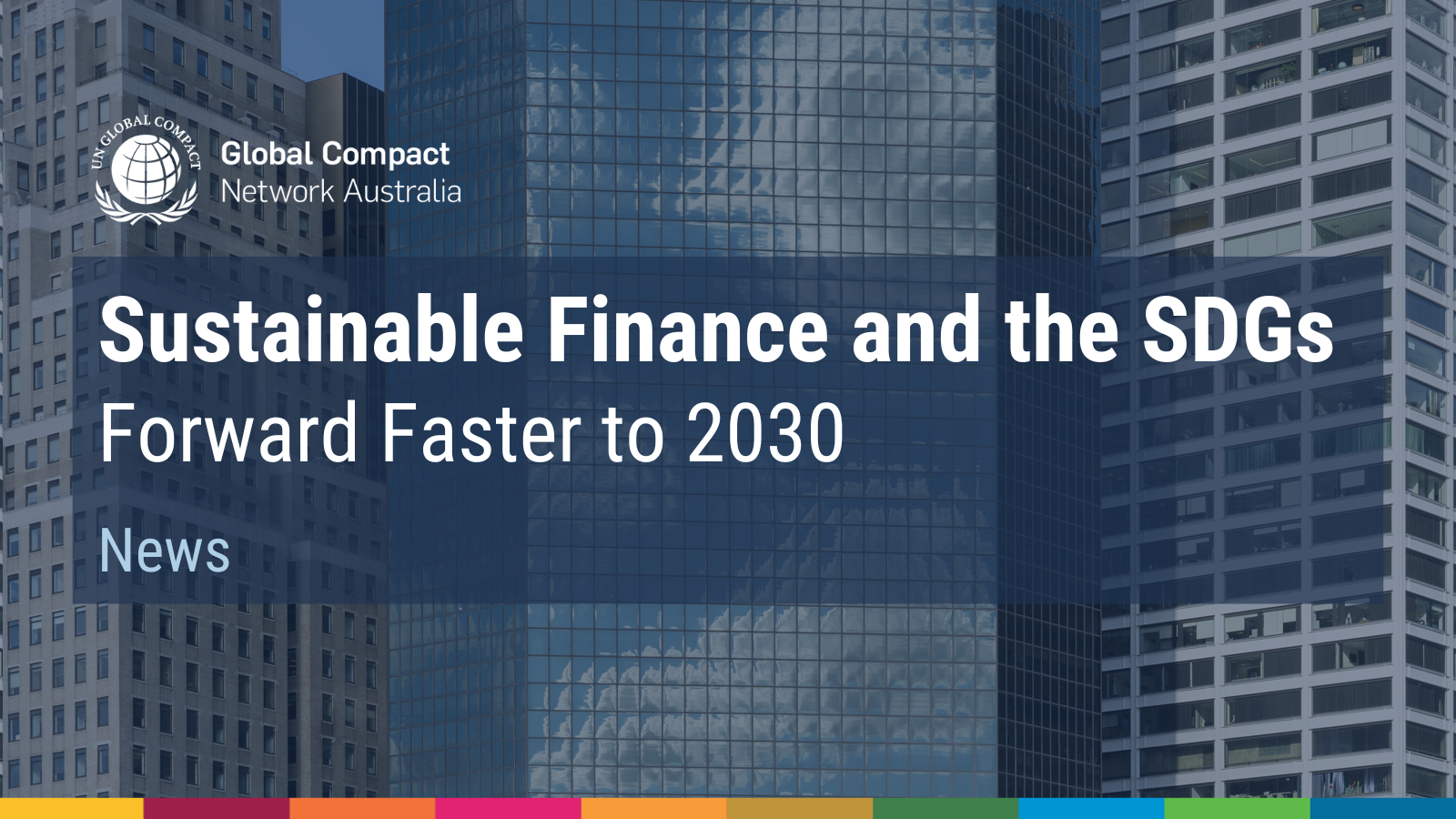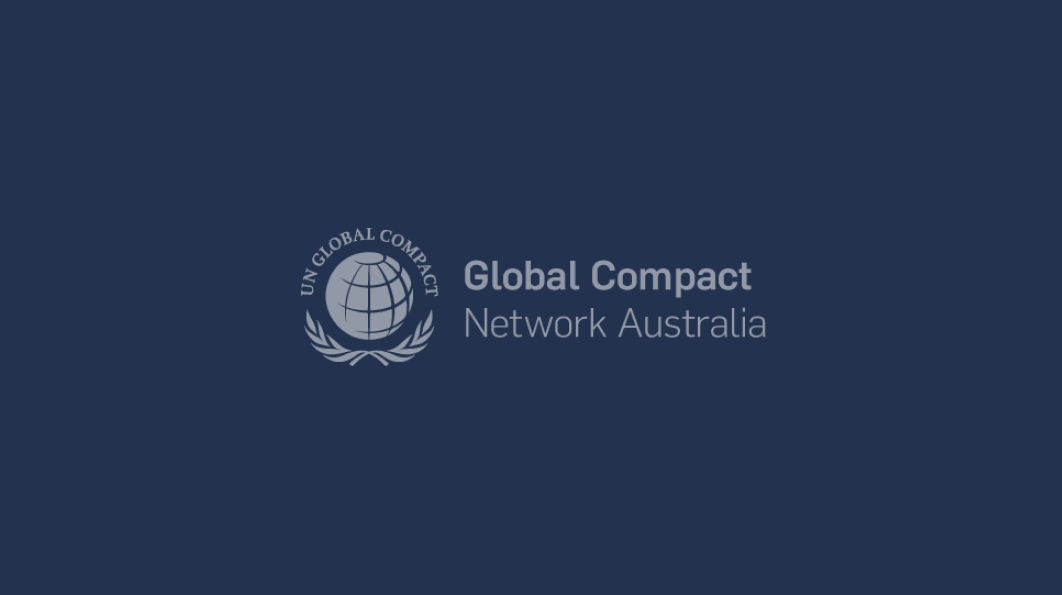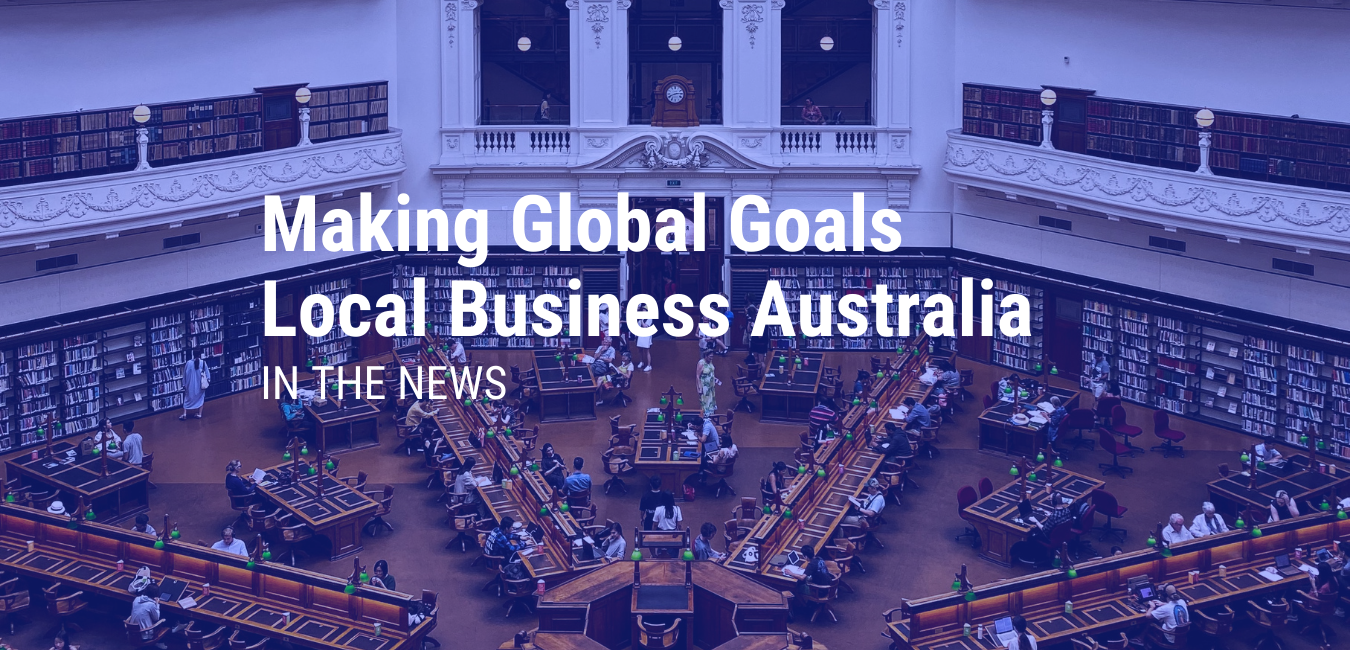
News, Sustainable Development Goals
Sustainable Finance and the SDGs – Forward Faster to 2030
Fiona Reynolds | November 17, 2023
‘New Australian Government strategies on sustainable finance a welcome step’ says UN Global Compact Network Australia Chair
The Sustainable Development Goals (SDGs) were announced in 2015 with much hope and drive. An ambitious agenda designed to guide worldwide efforts focused on sustainable development through to 2030. We are now at the midway point of the SDG’s implementation and it’s becoming increasingly apparent that substantial progress towards achieving these goals is slow. Despite unanimous support from all 193 member countries and from many parts of the private sector, tangible advancement in the realization of the SDGs has been limited.
We are almost halfway there in terms of timelines, but we are not halfway done when it comes to actions. As it currently stands, less than 18% of the targets are on track to be met. Even SDG 13, focusing on climate action, faces formidable obstacles. This is despite it commanding significant attention from both the private sector and governments around the Paris Accord commitments to hold final temperature outcomes in the latter part of this century below 2C and closer to 1.5C.
Both the SDG & Paris objectives are increasingly intertwined. Apart from SDG 13 on Climate Change, spread through the other 16 SDGs with their 169 indicators are direct and indirect climate measures that contribute to emissions reduction and significantly, adaptation and resilience. These are of growing importance as the underlying negative implications of a climate-affected world emerge, biodiversity targets remain at grave risk, and water scarcity affects more than 40% of the world’s population.
Negative impacts on our environment and economies and hence, communities, societies and nations are becoming more visible and challenging for policy makers, global institutions, and governments to manage. Inherent in the DNA of the entire SDG project is a positive agenda of social and economic development, in part to address these interlinked challenges. With the critical support and involvement of the private sector.
Just as the United Nations Framework Convention on Climate Change (UNFCCC) is looking to the Conference of the Parties (COP) based 2023-2025 Stocktake and Ratchet cycle to reboot global action and widen the ever-narrowing pathway to 1.5C, the United Nations Global Compact has launched the Forward Faster initiative with five immediate priorities to reboot corporate involvement in the SDGs: gender equality, climate action, living wage, water resilience, finance and investment.
Of those five priorities, climate action, water resilience, finance and investment stand out the most in an Australian context. Particularly with the step-by-step intention to enlarge Australia’s business and investment in the Asia-Pacific region, most recently reflected in the Australia’s Southeast Asia Economic Strategy to 2040 report.
Just as the government is looking to build domestic investor and corporate support for deeper economic and trade relationships in the region, the UN Global Compact Network Australia (UNGCNA) is looking for renewed corporate support with the Forward Faster initiative. For business, the overlap between long-term regional focus, SDG outcomes and government policy is obvious.
That’s why the launch by Treasurer Jim Chalmers of a Sustainable Finance Strategy is a further, welcome development for both business and our burgeoning funds management sector. Within each of the three pillars of the proposed strategy are elements that can support and reinforce corporate engagement and investment in the SDG 2030 targets, particularly in the Asia-Pacific.
- Pillar 1 contains the development of a Sustainable Finance Taxonomy, long called for by the finance sector, extending the vital development and policy work conducted by the Australian Sustainable Finance Institute (ASFI). Potential longer-term alignment with similar offshore taxonomies is a big plus for business.
- Pillar 2 includes identifying the systemic risks climate change poses to the financial system. We are now well past the point where we understand that negative physical climate impacts will continue to grow and ripple for decades through social, economic, security and financial structures. The SDGs seek to strengthen and improve our collective ability to respond positively to these impacts.
- Embedded in Pillar 3 is the ambition to position Australia as a global leader in sustainable finance, with an increased and welcome focus on sustainable investment in our region. This is an area of enormous but still somewhat overlooked potential.
Together, the elements in the 3 Pillars provide a renewed signal to the corporate sector of the importance of including SDG objectives in their leadership around sustainability, net zero and transition plans.
While the private sector alone is not responsible for delivering the SDGs, it does have an important role to play, Governments alone will not achieve the SDG’s. Which is why the UNGCNA is calling on companies to join the Forward Faster initiative and redouble their efforts, including on Climate Change, Water, Finance and Investment. All of which dovetail nicely into the broader international directions of the Sustainable Finance Strategy.
Investors and corporations looking to lead on sustainability directions can begin to see the signposts of a new landscape of policy direction, certainty and opportunity emerging.
Looking to 2030, working in partnership to achieve SDG outcomes is a part of that journey. Now is the time to move Forward Faster and we need to do that together. Find out more today.

